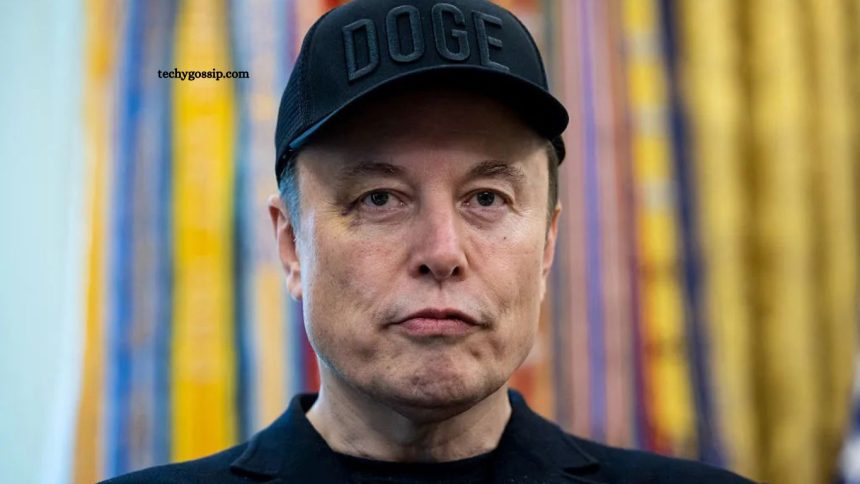Elon Musk recently revealed that Sam Altman, the CEO of OpenAI, received a refund from Tesla, sparking curiosity across social media and tech circles. The refund, though minor in the grand scheme, highlights the transparency and attention surrounding transactions involving high-profile figures in the tech industry. Musk, known for his candid and sometimes provocative statements, shared the information in a public forum, emphasizing the unusual nature of the refund and its relevance to his company’s customer policies.
- Background: The Tesla Roadster Reservation
- Altman’s Public Account
- Elon Musk’s Response
- The Tesla Roadster: A Long-Awaited Vehicle
- Financial Aspects: Deposit and Refund
- Public Rivalry and Media Attention
- Broader Implications: Consumer Trust and Pre-Order Culture
- Challenges for Tesla
- Lessons on Public Narrative
- The Intersection of Technology and Personality
- Frequently Asked Questions
- Conclusion
While details of the transaction remain limited, the disclosure has sparked discussion about Tesla’s service practices, accountability, and interactions among influential innovators. This incident underscores how even routine financial matters can attract significant attention when they involve prominent tech leaders like Musk and Altman.
Background: The Tesla Roadster Reservation
Elon Musk recently addressed a curious incident involving Sam Altman, CEO of OpenAI, and a long-delayed Tesla Roadster reservation. The situation, which began as a simple pre-order and refund request, has captured public attention due to the high profiles of the individuals involved and the unusually long time it took to resolve.
Sam Altman had reserved a second-generation Tesla Roadster years ago, paying a substantial deposit with the expectation of receiving one of Tesla’s flagship electric vehicles. The Roadster, first announced in 2017, has been widely anticipated but repeatedly delayed. Altman claimed that despite paying the deposit, he had to wait over seven years for delivery, ultimately prompting him to request a refund. His public recounting of the situation sparked discussion not only about Tesla’s pre-order policies but also about customer service practices for high-profile clients.
Read More: South Korea Investigates Human Rights Concerns in US Military Raid
Altman’s Public Account
In his public statements, Altman described the process as frustrating. He shared screenshots of emails from Tesla confirming his reservation and later correspondence regarding the refund request. According to Altman, the email address he used to contact Tesla about the refund bounced back, leaving him unsure if the request had been received.
Altman expressed understanding about the Roadster’s delays but emphasized that waiting more than seven years had tested his patience, framing his story in a narrative that resonated widely across social media and tech news platforms.
Elon Musk’s Response
Elon Musk responded to Altman’s claims in a public forum, asserting that Altman had indeed received the refund and that it was processed within 24 hours of the request. Musk highlighted that this crucial detail had been omitted from Altman’s public post, framing the situation as a minor issue blown out of proportion. Musk’s response also included subtle critiques of Altman’s broader business practices, referencing historical disagreements over OpenAI’s transition from a non-profit to a for-profit entity.
Musk’s involvement shifted what could have been a simple customer service story into a public exchange between two prominent tech leaders, capturing media attention and sparking debates about transparency, communication, and accountability.
The Tesla Roadster: A Long-Awaited Vehicle
The second-generation Tesla Roadster was designed to be the fastest production car ever made, boasting unprecedented acceleration and advanced technology. Since its announcement in 2017, Tesla has faced repeated production delays— a challenge not uncommon in the automotive industry, especially for high-performance electric vehicles. The long wait for delivery underscores the complexities of large-scale manufacturing, product testing, and innovation, particularly when managing expectations for high-profile customers.
Financial Aspects: Deposit and Refund
The financial aspect of the story centers on Altman’s deposit, which reportedly ranged from $50,000 to $60,000. Tesla’s handling of the deposit, combined with the long delay, prompted Altman to take the unusual step of publicly sharing his experience. While deposits for pre-orders are common in the automotive industry, delays that extend over multiple years, as in this case, raise questions about transparency, customer engagement, and the mechanisms for requesting refunds.
Musk’s clarification that the refund was promptly processed highlights the gap between perception and actual transaction handling, underscoring the importance of communication and record-keeping in customer service.
Public Rivalry and Media Attention
Beyond the refund itself, this incident illustrates the dynamics of public narratives between high-profile tech figures. Musk and Altman have overlapping histories, including Musk’s role as a co-founder of OpenAI before leaving in 2018. Their public interactions reflect ongoing tension and differing viewpoints on business ethics, innovation, and leadership.
Altman’s post, framed as a story of patience and frustration, prompted a rapid response from Musk, transforming a customer service matter into a narrative about accountability, reputation, and the influence of public perception.
Broader Implications: Consumer Trust and Pre-Order Culture
This situation has broader implications for consumer trust and pre-order culture in the technology and automotive industries. Companies that solicit deposits for products years in advance must manage expectations, maintain robust communication channels, and ensure efficient refund processes.
The visibility of high-profile cases like Altman’s amplifies public scrutiny, demonstrating how even routine business operations can become media stories when they involve influential figures. The episode also highlights the delicate balance between hype and delivery, particularly for products that represent technological breakthroughs or status symbols.
Challenges for Tesla
Tesla’s handling of this refund sheds light on potential challenges in managing long-lead pre-orders. Reports of bounced emails and delayed communication reveal gaps in infrastructure that can create confusion, even when refunds are ultimately processed. For companies like Tesla, which operate in high-stakes industries with devoted customer bases, ensuring that administrative systems function effectively over long timelines is critical.
Similarly, for customers, understanding the procedures for cancellation and refund requests is essential for navigating long-term pre-orders.
Lessons on Public Narrative
Public response to the Musk-Altman exchange illustrates the power of narrative in shaping perception. Altman’s storytelling emphasized the frustration and waiting period, resonating with followers who empathize with the experience of delayed delivery. Musk’s counter-narrative, emphasizing prompt action and resolution, underscores the role of public relations in correcting or reframing narratives.
In this interplay, social media platforms become arenas where personal brand, corporate accountability, and storytelling intersect, shaping how audiences perceive both individuals and companies.
The Intersection of Technology and Personality
The story also serves as a case study for the intersection of technology, personality, and customer service. Tesla’s Roadster delays, Altman’s high-profile status, and Musk’s engagement highlight how individual actions can significantly impact broader public perception. It underscores the importance of transparency and timely communication, particularly when high-value deposits and long timelines are involved. For emerging tech companies and established brands alike, the incident emphasizes that even minor administrative issues can escalate if not managed proactively.
Frequently Asked Questions
Why did Sam Altman request a Tesla refund?
Sam Altman had reserved a second-generation Tesla Roadster years ago and paid a deposit. After waiting over seven years without delivery, he requested a refund due to the extended delay.
How much was Altman’s Tesla deposit?
The deposit for the Roadster was reportedly around $50,000. This amount was paid when Altman reserved the vehicle several years ago.
Did Elon Musk confirm the refund?
Yes. Elon Musk publicly stated that Altman received the refund and that it was processed within 24 hours of his request, although Altman’s initial post suggested otherwise.
Why did the refund issue gain so much attention?
The dispute attracted attention because it involves two high-profile tech figures — Elon Musk and Sam Altman and highlights Tesla’s long-delayed Roadster pre-orders. Social media amplified the story.
What caused the delay in the Tesla Roadster?
The second-generation Roadster has faced repeated delays since its 2017 announcement, primarily due to manufacturing complexities, product testing, and Tesla’s focus on other vehicle models.
Does this incident affect Tesla’s reputation?
The incident raises questions about customer service, pre-order management, and communication infrastructure. While Musk confirmed the refund was issued promptly, the public nature of the dispute attracted scrutiny.
What lessons can consumers and companies learn?
Consumers should understand pre-order terms, deposit policies, and refund procedures. Companies must maintain clear communication, responsive systems, and timely customer support, especially for long-lead, high-value products.
Conclusion
The Tesla Roadster refund saga between Elon Musk and Sam Altman highlights the intersection of innovation, public perception, and high-profile personalities in the tech world. What began as a routine pre-order and refund request evolved into a widely discussed narrative due to the long wait times, significant deposit, and the stature of the individuals involved.







